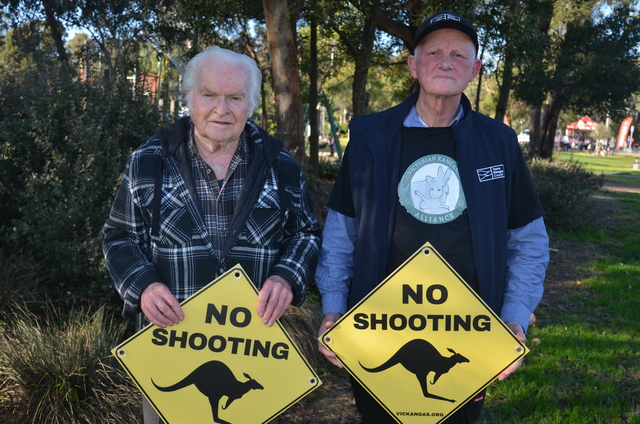A claim of employer discrimination relating to pandemic requirements and vaccinations has been dismissed by the Victorian Civil and Administrative Tribunal (VCAT).
Applicant Andrew Coe took his former employer SDI Ltd to VCAT claiming they discriminated against him by failing to provide reasonable adjustments for a person with a disability.
His employment at the Bayswater business was terminated on 31 December 2021 when he failed to comply with his employer’s directions made pursuant to Victorian Government Public Health Orders relating to the Covid-19 pandemic.
The applicant made an application to VCAT on 9 September 2023, for an order under the Equal Opportunity Act 2010 (EO Act) alleging discrimination in employment, in the form of a failure by SDI Ltd to provide reasonable adjustment for a person with a disability, the nature of which is not specified in his application form.
The EO Act bans discrimination based on various attributes a person may have.
The VCAT statement reads that, discrimination as defined in the EO Act can be direct or indirect – direct discrimination occurs when someone treats another person unfavourably because of a protected attribute.
Indirect discrimination occurs when someone, for example an employer, imposes a requirement, condition or practice which disadvantages persons with a protected attribute.
VCAT gave directions for the conduct of the proceeding on 30 November 2023, which included the conduct of a compulsory conference, and the filing of Points of Claim and Points of Defence.
A compulsory conference was held on 22 February 2024, at which the matter did not resolve, and further directions were given, including the listing of the hearing before the VCAT member, Ms Cameron on 15 May 2024.
“After hearing the matter, I reserved my decision, and am now providing orders and reasons,” Ms Cameron said.
The statement reads that Mr Coe’s case is quite difficult to understand due to the application and his subsequent claims and submissions that have been confusing and lacked coherence.
“In his initial application to VCAT, the applicant states that he was discriminated against in his employment with SDI Ltd where he had worked for 29 years and which failed, in 2021, to make reasonable adjustments for his disability,” the statement reads.
“In his application he does not specify what his disability is, or what adjustments should have been made, he seeks remedies including an apology, a review of the respondent’s equal opportunity policies, and financial compensation totalling the equivalent of ten years of his annual salary.”
The statement further reads that according to the applicant’s written submissions, the events that occurred in the latter part of 2021 included the applicant’s unwillingness to return to his workplace once vaccination became a requirement of his employment, because he did not want to be vaccinated against Covid-19.
“The applicant’s employer, SDI Ltd, required vaccination of all its employees in order to comply with the Victorian Government’s Public Health Orders in place at that time,” Ms Cameron said.
“The applicant refers in his submissions to his ‘hearing (being) limited’ and sets out concerns about a claimed potential for Covid vaccinations to contribute to tinnitus and other inner ear disorders.”
“The applicant’s submissions provide a critique of the Public Health Directions sequentially put into place in Victoria during the relevant period, and about the application of those orders to his place of employment.”
The applicant also sets out claims about his political beliefs in opposition to vaccine mandates; his ‘perceptions’ of the respondent’s denial of his request to work from his home in Casterton in regional Victoria (thus to avoid vaccination requirements); and claims about the respondent’s obligations under the Fair Work Act 2009 and the state’s Occupational Health and Safety Act 2004, as well as under the EO Act.
In his submissions the applicant submits that the Tribunal ought to have regard to the Victorian Charter of Human Rights and Responsibilities Act 2006, the state’s Occupational Health and Safety Act 2004, the state’s Occupational Health and Safety Regulations 2007, and the Victorian Public Health and Wellbeing Act 2008.
“In his response to the respondent’s strike out application, and in his oral submissions at the hearing, the applicant, through his representative, asserted that some of his points of claim are not sustainable and that they should perhaps not be pressed after all,” Ms Cameron said.
“At the hearing while discussing the applicant’s suggested abandonment of much of his complaint against the respondent, I told the applicant and his representative, that in the circumstances I found the claims he had actually intended to make, or that remained to be considered by the Tribunal, to be increasingly difficult to discern.”
Ms Cameron said the applicant responded that his claim is, and only ever was, a claim of disability discrimination arising from a failure by SDI Ltd to consider making reasonable adjustments relating to his hearing loss.
“The applicant’s representative suggested that, should the matter proceed to a substantive hearing of the applicant’s claims, much of the content of the claims and supporting materials submitted in support of them would be ‘jettisoned’,” she said.
Ms Cameron said as per required, in considering the respondent’s application, she has taken the applicant’s case at its highest.
Mr Coe was represented in this proceeding by Mr Parry, who is an industrial officer and advocate from Red Union Support Hub, however, his submitted documents fail completely to conform with legal formatting in setting out his points of claim and particulars in such a way that the respondent can properly understand and respond to them.
“I accept the respondent’s submission that all of the applicant’s claimed contraventions of Commonwealth laws, and of Victorian law where VCAT does not have jurisdiction, are misconceived and must be summarily dismissed,” Ms Cameron said.
“I further find that the applicant’s claims of discrimination on the basis of his vaccination status and his political opinion about vaccinations and about the Victorian Government Public Health Orders (and his employer’s compliance with those orders) should be immediately dismissed.”
“These findings cause me to immediately dismiss the entirety of applicant’s claims contained in his points of claim other than a claim made in paragraph 18 regarding his concerns about his risk of adverse events, such as tinnitus and other inner ear disorders as a side effect of Covid vaccination.”
However, despite the length of Mr Coe’s written submissions and his representative’s commentary at the VCAT hearing, he has not clearly articulated this claim at any time and the nature of his condition is not clearly described.
“Having considered the written and oral submissions of the parties, with the exception of the claim contained in paragraph 18 of the applicant’s Particulars of Claim, which is struck out, I consider the respondent has discharged the onus to satisfy the Tribunal that the applicant’s complaints against the respondent are obviously unsustainable in fact or in law, are misconceived and should be summarily dismissed,” Ms Cameron said.
















